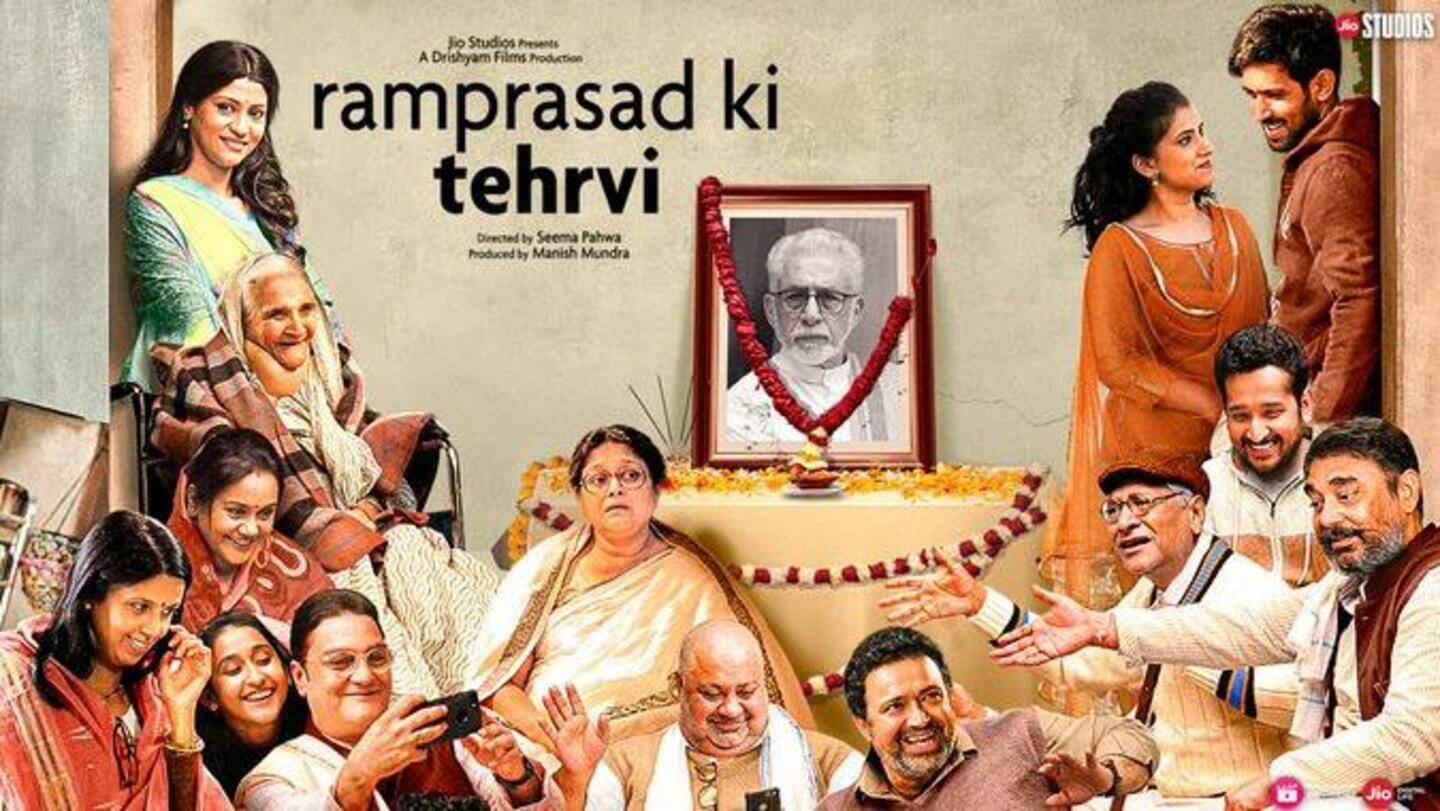
#NewsBytesRecommends: 'Ramprasad Ki Tehrvi'—Portrait of potent emotions, conflicting family dynamics
What's the story
Seema Pahwa's directorial debut, Ramprasad Ki Tehrvi, is a distinctive work of art.
Streaming on Netflix and JioCinema, it profoundly explores grief and its ramifications in Indian homes and how a close relative's death is an uncomfortable truth that slaps each family member in a starkly different way.
Embellished with honest, potent emotions and surefooted performances from veterans, the film immaculately mirrors Indian society.
Plot
The film mines Hindu tradition of 'tehrvi'
Staying committed to its title, the family drama walks on relatively uncharted territory—it explores the Hindu tradition of tehrvi, where family members mourn a death in the clan for 13 days.
Death and mortality are haunting realizations as is, but what further makes these topics worth exploring is the way everyone responds differently to a tragedy and how it simultaneously binds and alienates them.
Authentic dialogues and story
Evident, exemplary sense of authenticity makes film remarkable
A thick layer of authenticity wraps Ramprasad Ki Tehrvi and it seems to penetrate our psyche in ways only select films successfully manage to.
Devoid of any artificiality or needless sophisticatedness, its veracity lies in its dialogs, endless conflicts between the characters, their latent complaints, their painstakingly engineered facades, and the societal pressure to conform to an unwritten protocol that dictates "acceptable" mourning behaviors.
Performances
Laced with unblemished performances from ensemble cast
The film relies massively on its impeccable ensemble cast, and performances by several veterans further make a profound case for the movie.
Supriya Pathak as the grieving widow, Manoj Pahwa as the eldest son, Ninad Kamat as the youngest son, Vikrant Massey as the grandchild, and Konkona Sen Sharma as the "modern" bahu bring a heightened sense of originality and flavor to the drama.
Characterization of conflicts
Conflicts always exist but never turn into full-blown arguments
In Ramprasad Ki Tehrvi, a Lucknow-based family finds itself under the same roof after the family patriarch's demise.
Stifling emotions and conversations in hushed tones follow as conflicts buried deep under the pyramids of time rear their head yet again.
What's poignant is how they never blow into full-blown arguments but always simmer under the surface, a scenario not alien to Indian families.
Generation gaps
'Reunion' reminds family of distance between each other
The movie also dissects the way generation gaps unavoidably seep in and yet, somehow don't darken family relations completely.
Unexpectedly assembling for 13 days may give the family a chance to talk out their differences. Still, simultaneously, it signifies how urbanization and ambition have isolated them from one another, almost irreparably.
One death triggers a series of conversations, ugly truths, and uncomfortable discoveries.
Conclusion
Catch this poignant drama on Netflix, JioCinema
A relatable film on several levels, Ramprasad Ki Tehrvi also denotes a palpable, painful dearth of humanity.
It also stands for the sheer necessity of putting our lives back on track days, months, or even years after someone's demise leaves a gaping chasm in our hearts.
Grief impacts, changes, and scars everyone in a distinct manner, but eventually, death is what gives life meaning.